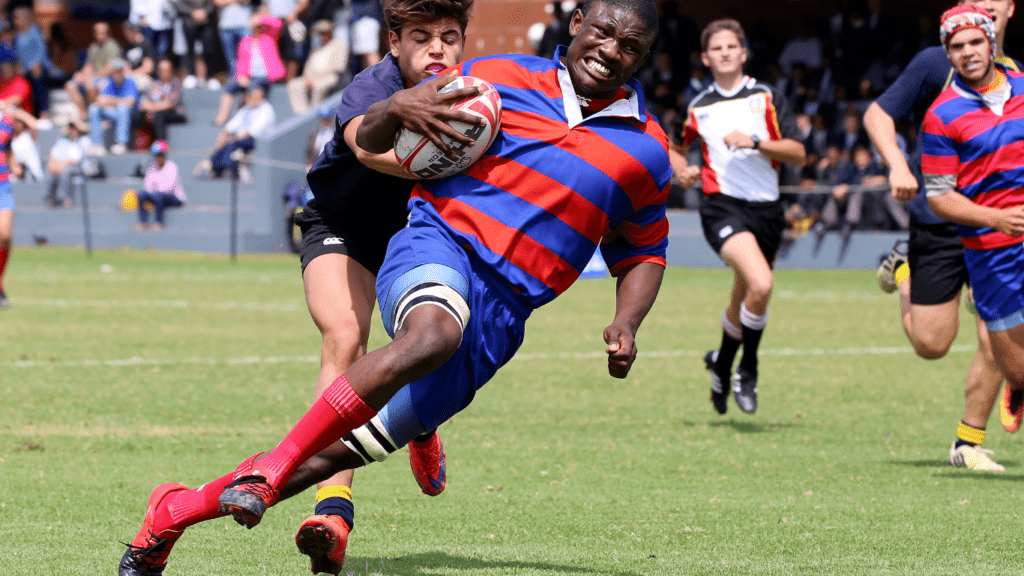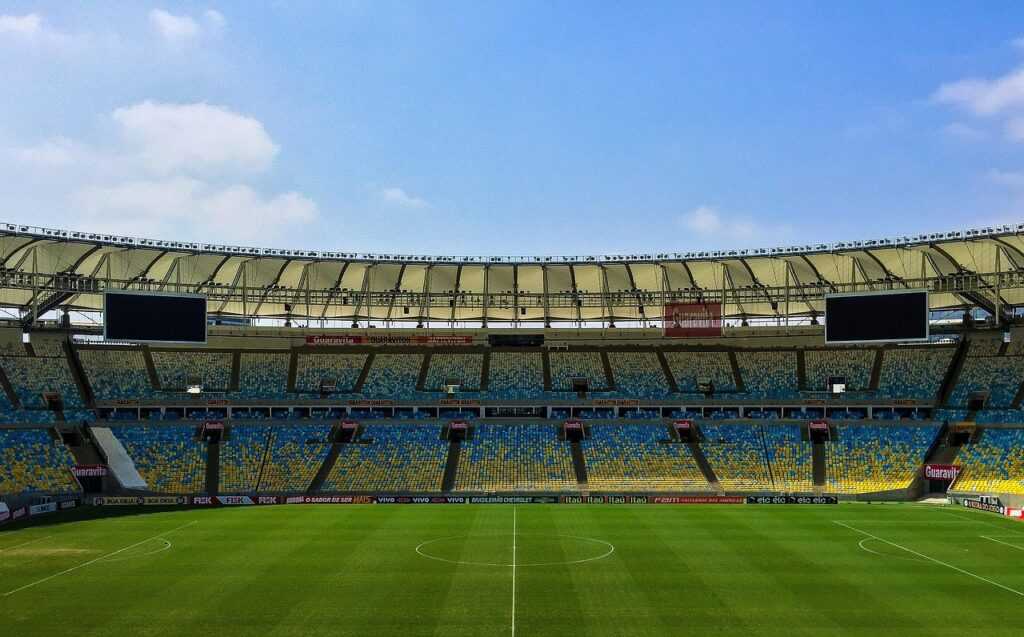Rugby World Cup: Who Are the Favorites?
Popular favorites set high expectations for the Rugby World Cup. New Zealand, South Africa, and England consistently top the list.
New Zealand
New Zealand remains a dominant force in rugby. The All Blacks have won the World Cup three times and possess an incredible winning percentage. Player depth contributes significantly to their success. Key players like Beauden Barrett and Brodie Retallick demonstrate skill and leadership on the field. Their recent performance in the Rugby Championship underscores their strength and ability to handle pressure situations.
South Africa
South Africa, known as the Springboks, shows formidable prowess in world rugby. As the reigning champions, they bring robust defense and powerful forwards. Players like Siya Kolisi and Handré Pollard drive the team with consistent performances. Their recent victories in the Rugby Championship signal their readiness to defend their title.
England
England poses a substantial threat to other competitors. The 2003 World Cup champions boast a balanced team with experience and young talent. Owen Farrell’s leadership and Maro Itoje’s defensive skills bolster their lineup. They recently showed strong form in the Six Nations Championship, indicating their capability to perform under tournament conditions.
France
France, hosting the 2023 World Cup, carries high expectations. Their dynamic style and home advantage create a unique edge. Antoine Dupont and Virimi Vakatawa are pivotal players enhancing their attacking strategies. Performance improvements in recent years make them potential title contenders.
Potential Dark Horses
Some teams, though not traditional favorites, might surprise fans. Japan, having impressed in the 2019 World Cup, remains a contender with agile and tactical play. Argentina consistently delivers strong games against top-tier teams. Players like Pablo Matera drive their competitive spirit.
Tracking these favorites and dark horses can provide deeper insights into the Rugby World Cup excitement.
Historical Performance
The Rugby World Cup has a rich history, showcasing the sport’s top teams since its inception in 1987. Studying the historical performance of various nations helps predict future favorites.
Previous Winners
The Rugby World Cup’s previous winners demonstrate a select group of dominant forces in the sport. New Zealand and South Africa have each clinched three titles (1987, 2011, 2015 for New Zealand; 1995, 2007, 2019 for South Africa). Australia follows with two championships (1991, 1999). England, the only Northern Hemisphere team to win, secured their victory in 2003. These four nations have set themselves apart in World Cup history through their consistent high-level play and successful campaigns.
| Year | Winner |
|---|---|
| 1987 | New Zealand |
| 1991 | Australia |
| 1995 | South Africa |
| 1999 | Australia |
| 2003 | England |
| 2007 | South Africa |
| 2011 | New Zealand |
| 2015 | New Zealand |
| 2019 | South Africa |
Consistent Contenders
Several teams frequently reach the advanced stages of the Rugby World Cup. New Zealand maintains a near-legendary status, consistently performing well, evidenced by their three titles and numerous semi-final appearances. South Africa, renowned for its powerful style, also ranks as a perennial favorite. England, with its strong rugby tradition, regularly contends, reaching the final four times. Australia, despite recent challenges, remains a significant force, often advancing deep into the tournament.
France emerges as another consistent contender, reaching the final three times (1987, 1999, 2011) without winning the title. Though victory has eluded them, their repeated deep runs mark them as a team always in the mix. Teams like Argentina and Wales frequently push beyond the pool stages, showcasing the depth of competitive rugby worldwide.
Understanding historical performance highlights why these nations often lead discussions around Rugby World Cup favorites.
Team Analysis

In this section, I’ll dive deeper into the strengths and weaknesses of the top teams, offering insights into why they’re considered favorites for the Rugby World Cup.
New Zealand
New Zealand’s consistency in dominating the rugby scene makes them perennial favorites. The team’s powerful mix of skill, fitness, and tactical prowess sets them apart. Key players like Beauden Barrett orchestrate the play, while Brodie Retallick fortifies the pack. Recent performances display their unwavering resilience and creative playmaking. Their All Blacks branding represents a legacy of excellence and relentless pursuit of victory.
South Africa
South Africa, the reigning World Cup champions, boasts a formidable lineup known for its physicality and solid defense. Leadership from Siya Kolisi energizes their expansive play, while Handré Pollard’s precision in kicking enhances their scoring opportunities. The Springboks’ hard-hitting forwards and strategic gameplay sustain their dominance. Their emphasis on defensive robustness and tactical kicking proves vital in high-pressure matches.
England
England combines historical prestige with a dynamic squad, making them strong contenders. Their 2003 World Cup victory remains influential, setting high standards. Owen Farrell provides leadership and versatility, with Maro Itoje excelling in both lineouts and open play. This team’s blend of seasoned veterans and promising newcomers allows them to adapt fluidly to varied match situations. Their disciplined approach and adeptness in set-pieces continually enable them to maintain competitive edges.
Australia
Australia brings a rich rugby heritage, highlighted by their two World Cup wins. The Wallabies rely on their agility, strategic depth, and robust backline to challenge opponents effectively. Influential players like Michael Hooper drive their ambitious gameplay, combining experience with tactical shrewdness. Despite fluctuating recent performances, their ability to elevate during World Cup tournaments remains notable. Their attacking flair and adaptability often turn the tide in pivotal matches.
Each of these teams offers unique strengths that could lead to success in the Rugby World Cup. Analyzing these facets provides a clearer understanding of why they’re front-runners in this prestigious tournament.
Key Players To Watch
The Rugby World Cup brings the best talent from around the globe. Here are some key players who could shine in this tournament.
Standout Forwards
In the heart of the action, forwards play a crucial role. Key players to watch include:
- Siya Kolisi: South Africa’s inspirational captain excels in flanker duties, combining physicality and leadership.
- Brodie Retallick: New Zealand’s lock is renowned for his lineout expertise and work rate across the field.
- Maro Itoje: England’s dynamic lock and flanker adds strength and agility, balancing defensive tenacity with offensive skill.
- Pablo Matera: Argentina’s flanker brings unyielding competitiveness and has a knack for pivotal turnovers.
- Beauden Barrett: New Zealand’s versatile back can play fly-half or full-back, known for his game-changing speed and vision.
- Handré Pollard: South Africa’s fly-half commands the game with exceptional kicking and strategic acumen.
- Antoine Dupont: France’s scrum-half combines quick decision-making with creative playmaking, making him a standout performer.
- Owen Farrell: England’s fly-half and center delivers consistent performance under pressure with his leadership and kicking prowess.
Emerging Teams
Several rugby nations are making waves and have the potential to surprise everyone in the upcoming Rugby World Cup. These teams have shown significant progress in recent years and could be the next big thing in rugby.
Rising Stars
Fiji has consistently improved its performance thanks to its strong sevens rugby foundation. Players like Semi Radradra and Levani Botia bring agility and flair to the team, making them a formidable side. Their fast-paced playing style, combined with physicality, keeps opponents on their toes.
Japan, after their remarkable 2019 World Cup performance, remains a team to watch. Michael Leitch and Kazuki Himeno lead a squad that combines speed, strategic play, and resilience. Japan’s disciplined approach and ability to execute well-crafted game plans make them a serious contender.
Dark Horses
Georgia has developed a reputation for its robust pack and disciplined scrummaging. With experienced players like Mamuka Gorgodze and Beka Gorgadze, Georgia’s forwards bring strength and technique to the field. Their growing confidence and skill set might just elevate them to new heights.
Uruguay demonstrated their fighting spirit by defeating Fiji in the 2019 World Cup. Skilled players like Gaston Mieres and Santiago Arata drive Uruguay’s competitive edge. Their tactical awareness and tenacity could see them causing upsets.
By keeping an eye on these rising stars and dark horses, the Rugby World Cup promises to deliver thrilling surprises and exciting matchups.
Factors Influencing Performance
Performance in the Rugby World Cup hinges on several critical factors that can shape the outcomes of matches and the overall trajectory of the tournament.
Injuries
Injuries can significantly impact a team’s performance. Key players sidelined by injuries disrupt team cohesion (e.g., a pivotal fly-half or a dominant forward). For instance, a team losing its star kicker might struggle to convert opportunities into points. Injuries can also force the coaching staff to make strategic changes, which might not work as planned. During the 2019 World Cup, South Africa managed to avoid significant injuries to key players, which was a cornerstone of their path to victory.
Coaching Strategies
Coaching strategies play an essential role in determining how well a team performs. Coaches analyze opponents’ weaknesses, design game plans, and make in-game adjustments to exploit specific scenarios. Teams with versatile coaching staffs (e.g., those who adapt tactics like employing a rush defense or launching surprise counterattacks) gain an edge over less adaptable teams. Eddie Jones, England’s head coach, is known for his strategic acumen, which was pivotal in taking England to the final in 2019.



